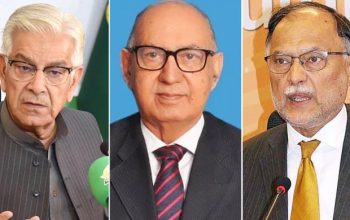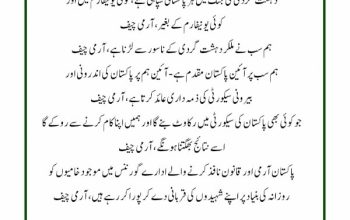The Justice Isa-led judicial commission probing audio leaks raised objections on Wednesday over the larger bench hearing petitions against the formation of the commission, and maintained that it was "not appropriate" for the bench to hear the petitions.
The government on May 20 formed a commission – led by Supreme Court puisne judge Justice Qazi Faez Isa, comprising Balochistan High Court (BHC) Chief Justice Naeem Akhtar Afghan and Islamabad High Court (IHC) Chief Justice Aamer Farooq – to probe into the genuineness of some audio leaks concerning serving and former members of the judiciary and their impact on the independence of the judiciary.
A number of petitioners including former prime minister Imran Khan challenged the formation of the commission. Later, a five-judge Supreme Court bench led by Chief Justice of Pakistan (CJP) Umar Ata Bandial, and comprising Justice Ijazul Ahsan, Justice Munib Akhtar, Justice Syed Hasan Azhar Rizvi and Justice Shahid Waheed, suspended the probe panel’s proceedings while hearing the petitions.
In a concise statement responding to a petition, the commission maintained that “it would not be appropriate for this bench to hear these petitions”.
“The oath taken by the Chief Justices and Judges of the Supreme Court and High Courts require them to act, ‘in accordance with the Constitution of the Islamic Republic of Pakistan and the law’,” it detailed.
Read CJ-led bench suspends govt notification
The statement said that the judges were required to “abide by the code of conduct issued by the Supreme Court Judicial Council” and not allow their “personal interest to influence their ‘official conduct’ or ‘official decisions’”.
Quoting the code of conduct requirements, it continued that a judge “must decline resolutely to act in a case involving his own interest, including those of persons whom he regards and treats as near relatives or close friends”.
Moreover, “a Judge must refuse to deal with any case in which he has a connection with one party or its lawyer more than the other, or even with both parties and their lawyers”.
“To ensure that justice is not only done, but is also seen to be done, a Judge must avoid all possibility of his opinion or action in any case being swayed by any consideration of personal advantage, either direct or indirect.”
The commission’s concise statement said that one of the audio recordings “allegedly pertains to the mother-in-law of the Hon’ble Chief Justice”, while Justice Munib Akhtar “may also be mentioned in the said recording”.
It further said that “in another audio recording reference is made to case fixation before a particular bench” headed by Justice Ijazul Ahsan.
The statement also argued that “members of the Commission are bound to act in accordance with the law”, adding that the Constitution, law and the code of conduct must also be observed by the members of the commission.
“The law includes the Act, which grants to the Federal Government the power, under Section 3(2), to constitute inquiry commission” and that the act did not “stipulate that the Government must consult with the Chief Justice of Pakistan before it constitutes a commission”.
Section 3(2) was quoted in the statement as “the Federal Government shall, by Notification in the official gazette, appoint the members of the Commission and where more than one member are so appointed, the Federal Government shall designate one of the members to be the Chairman of the Commission”.
The statement maintained that the Act did not grant power to the CJP to nominate members of a commission.
Read more Asif warns judiciary against overstepping authority
“Merely because the Government may elect to consult the Chief Justice does not mean that it has to. The Act has existed for over six years and, to the best of the knowledge of the undersigned, no challenge to it or specifically to its section 3(2) has been made, let alone the same having been struck down”.
{{pdf}}
A day earlier, a petition by the federal government sought the recusal of CJP Bandial, Justice Ijazul Ahsan, and Justice Munib Akhtar from the bench hearing the pleas against the commission. It urged the CJP to reconstitute the bench and asked the judges to “graciously consider recusing themselves from the instant petitions”.
The petition maintained that one of the rules of natural justice was that the adjudicator should be impartial and that Justice Bandial’s inclusion in the bench hearing petitions against the commission, formed to investigate audio leaks “pertaining to a very close family member”, raised concerns regarding objectivity.
It stated that “it is important to reiterate that the questions raised above pertain only to the appearance of impartiality and conflict of interest and therefore are distinct and separate to bias which has neither been raised nor is the contention of the respondent”.
Additionally, the government’s plea requested that Justices Ahsan and Akthar also recuse themselves due to their involvement in the audio leaks.
Read the full story at the express tribune website.


